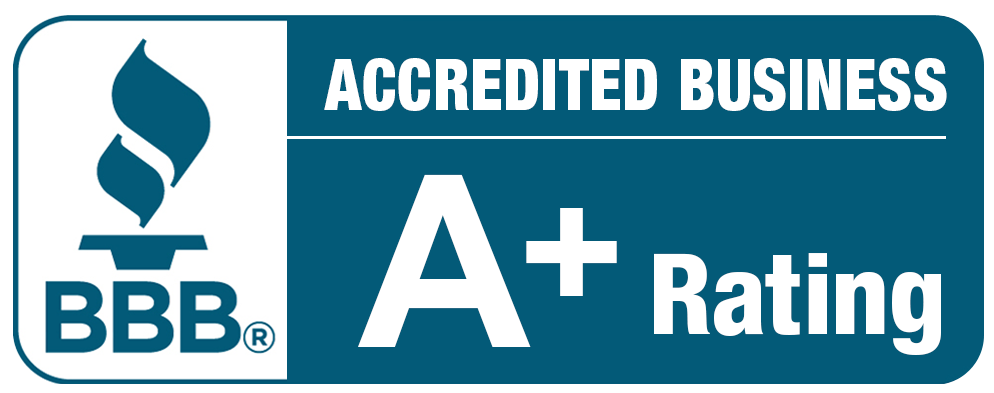Many distressed small businesses face the common predicament of whether or not to agree to a UCC lien or confession of judgment (COJ) when securing a loan (which can often be a critical lifeline needed to keep a company operational). While a UCC lien or confession of judgment can be a means of securing the financial capital your distressed business needs, it can also come with a number of clauses which should be fully understood.
Below we will take a look at what a UCC lien or COJ entails and review what happens after a confession of judgment. We’ll also provide an overview of how National Credit Partners can help you find debt relief solutions if a UCC lien or COJ has left your distressed business in a seemingly untenable position.
A UCC lien (also known as a UCC-1 financing statement) is a claim against a business’s assets under the U.S. Uniform Commercial Code. A UCC lien represents a legal agreement filed by the lender to give notice to the business that it may have an interest in its personal property.
As a distressed business in need of a loan, a UCC lien is a way for the lender to establish a property claim on your company’s assets. Accordingly, should the business ever experience substantial financial hardship and end of defaulting on the loan, a UCC lien allows the lender latitude to effectively collect the balance due.
UCC liens or UCC-1 financial statements are actually quite common. Essentially, when a business takes out a loan, the UCC-1 financing statement establishes an agreement whereby the debtor agrees that if they are unable to repay said loan the lender will assume the company’s assets.
However, unlike other liens that may be filed in an attempt to quickly seize assets or capital, a UCC lien operates more like a mortgage – where you’ve agreed to the terms in advance.
UCC liens typically expire after five years. That said, the lender typically has the right to renew the lien. If a business pays off the loan in advance, a termination statement of the UCC lien may be filed with the secretary of state.
A confession of judgment (COJ) is a legal document issued in business loans or other commercial agreements which effectively waives the borrower’s right to due process in the event that the terms of the contract are broken. A COJ must be signed by the borrower (the defendant), at which time they accept that they are no longer able to legally dispute both the liability and the amount of damages agreed upon with the lender (the plaintiff).
A confession of judgment is a way for the lender to offer a distressed business the loan they need. But in taking on that increased risk, a COJ also provides the creditor with the peace of mind that they will be able to circumvent normal court proceedings and avoid a lengthy and frequently costly legal process that would otherwise be required to resolve a dispute. Signing such a confession of judgment forfeits the right of the defendant to dispute the claim in the future.
However, a confession of judgment does not take effect after being signed by the debtor unless the pre-established contract is breached. In such a case, the confession of judgment provides the lender with a means of resolving a contractual dispute without having to engage in legal proceedings.
The terms of a confession of judgment can vary and are negotiable based on which lender you choose. Accordingly, while the potential outcome of having a distressed business’s assets seized due to a breach of contract exists, a confession of judgment can also be a means of obtaining an essential loan which allows a small businesses to remain operational when they otherwise wouldn’t be able to do so.
A confession of judgment must be agreed to by the debtor in advance, and it is imperative that you carefully read and understand all terms before entering into a COJ.
A confession of judgment is often signed in the following scenarios:
At National Credit Partners, we offer debt relief and modification solutions for small and medium-sized businesses like yours. Whether you’re facing hardships as a result of a UCC lien or confession of judgment, we can review those issues with you one-on-one and help provide proven solutions which ensure your business is able to obtain the debt relief or modification necessary to continue operations.
But at National Credit Partners, our goal isn’t just to keep your business operational – it’s to help you access debt relief and modification solutions that will allow your business to thrive in the near future. Unlike most other debt relief companies, National Credit Partners offers unique advantages to help your business get back on track. For example:
These are just a couple of examples of the personalized dedication we make to each and every client, which can prove to be considerably advantageous for your business in the long run.
Fill the form to request a free Business Debt Consultation Now!
Your information is confidential and will not be shared with outside parties. See our Privacy Policy. By submitting this form, you agree to opt-in to receive emails, text messages, auto-dialed and/or pre-recorded calls from nationalcreditpartners.org, and data rates may apply. You may opt-out of communications at any time.
To “confess a judgment” means to waive one’s right to legal proceedings in the event of a contract breach in a business loan or commercial agreement. After a confession of judgment has been signed, your business effectively no longer has any legal recourse in terms of that specific debt which applies to the COJ. Contact an experienced member of the National Credit Partners team today to discuss your COJ or UCC lien issues.
If all the terms agreed upon by the debtor and creditor are met, the “confession of judgment” or waiving of one’s right to legal recourse is never utilized or carried out through the courts. In other words, as long as the debtor adheres to the mutually agreed upon contract, a confession of judgment can be viewed as merely a security blanket for the lender when issuing loans to what are typically considered distressed or high-risk small and medium-sized businesses.
In essence, a confession of judgment is a lender agreeing to accept a high-risk client, while said high-risk client in-turn agrees to waive their right to legal proceedings in the event of a contract breach. However, that confession of judgment can leave a business in a difficult position in the event that loan payments are ever not able to be made.
At National Credit Partners, we work with businesses nationwide in helping to identify and take advantage of the best possible debt relief or modification solutions which will offer viable long-term success. Accordingly, we’ve seen how confession of judgment laws vary throughout the nation and can adversely impact small businesses like yours.
How a confession of judgment is enforced is something that will vary state-by-state. For example:
In California, a confession of judgment is a legal agreement that requires appropriate formalities in order to be executed and enforceable. California Code of Civil Procedure (CCP) sections 1132, 1133, and 1134 govern confessions of judgment.
Under the CCP, a confession of judgment requires the following in order to be enforceable:
In New York, a 2019 bill “effectively eliminated” confessions of judgment in small business financing throughout the state. However, debtors that reside in New York may still be subjected to New York-specific COJs (depending on when the agreement was signed).
As laws vary on a state-by-state basis, if a prior COJ is adversely impacting your business’s ability to succeed, it’s important to discuss the ramifications with a debt relief professional.
At National Credit Partners, you’ll have peace of mind knowing that we provide attorney representation to all of our clients in addition to our own debt relief expertise. That means you have complete access to both legal experts and debt advisors who will assist with permanently modifying/restructuring your debt and helping you find the relief you need.
At National Credit Partners, we value each and every client. Accordingly, we’ll always walk you through the entire process when considering any type of debit relief option from start to finish, ensuring you fully understand both the terms as well as the ramifications of any agreement.
We’ve successfully helped small businesses facing significant financial challenges, including defaults, collections, and legal actions, achieve permanent debt relief solutions. In fact, many of our distressed business clients were able to qualify for traditional financing (like SBA or term loans) after graduating our program.
With our decades of experience and proven results, the National Credit Partners team of dedicated professionals is here to help your business find a debt relief solution that is tailored to directly meet your needs, challenges, and future goals.
Call us today at (888) 766-3998 or fill out the contact form below to arrange for a free and no obligation consultation with one of our skilled team members. We’ll review your company’s specific circumstances thoroughly and discreetly, and utilize our decades of experience and proven results to help you successfully modify your existing debt.
Don’t settle for an unproven debt relief professional that could potentially make your business’s situation worse through inexperience. Choose National Credit Partners, the company offering direct, strong, and proven relationships established with countless creditors. We’ve helped companies achieve the financial solutions they need to make fresh starts, and can do the same for your business by identifying the personalized debt relief option that is right for you.
As your premier and Better Business Bureau A+ rated debt consolidation company, National Credit Partners is comprised of financial professionals specializing in helping small and medium-sized businesses like yours achieve the debt relief they need.
Complete the form below and one of our team members will reach out to you immediately.
*Please note that National Credit Partners does not issue UCC liens or confessions of judgment. We offer debt relief and modification solutions for small and medium-sized businesses like yours that may be impacted financially after entering into a UCC lien or confession of judgment in the past.
If you are one of the many thousands of companies struggling with high interest business loans, call us today for a free consultation. Just taking the first step in talking to an expert can start relieving stress. And once you talk to a debt help specialist, you will see that there is hope.

An A+ rating represents BBB's high degree of confidence that the business is operating in a trustworthy manner and will make a good faith effort to resolve any customer concerns filed with the BBB.

Monday-Friday: 8:00am – 5:00pm PST
Saturday-Sunday: Closed
Chat with an expert to learn more about our strategies to help you find debt relief.